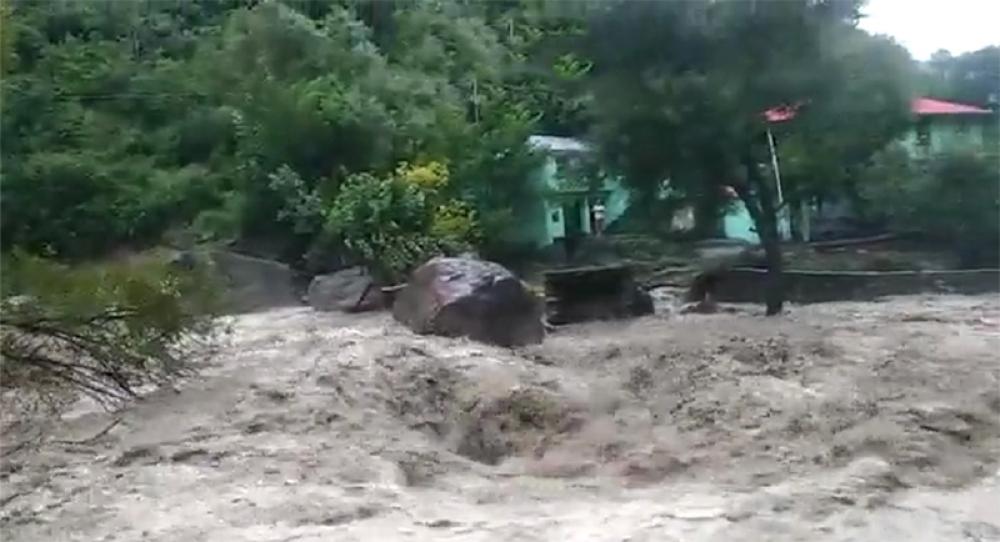Just Earth News | @justearthnews | 28 Aug 2022, 01:41 am Print
 Pakistan Floods
Pakistan Floods Image: @HP_SDRF
Islamabad: Khyber Pakhtunkhwa’s Kohistan tehsil was reeling on Sunday as officials continued to call for help in rescuing people stranded in areas “completely cut off” due to the deadly floods that has disrupted normal life in Pakistan.
A day earlier, some 350,000 people were evacuated from Charsadda and Nowshera as powerful flash floods in the province caused the Kabul River to swell, sweeping away a large bridge overnight and cutting off some districts from road access, reports Dawn News.
The chairman of Upper Kohistan’s Kandia tehsil, Anwar Ul Haq, told Dawn News today that Kandia has been “completely cut-off” from the rest of Kohistan’s areas and there are no mobile phone signals.
He added that locals made their way through perilous conditions on foot — with some travelling for two days — and informed him that an estimated 2,000 houses had been washed away in the floods.
Haq said there is an acute need for food and medicine in Kandia as cases of diarrhoea have surged.
Separately, Lower Kohistan Assistant Commissioner Saqib Khan told Dawn News that the military has been requested to fly in helicopters to rescue stranded families there since “there is no road route, the communication system and electricity in the affected areas [has broken down]”.
Meanwhile, Pakistan Army's aviation choppers continue to conduct sorties to rescue stranded people in the flood-hit regions.
According to the Inter-Services Public Relations (ISPR), 110 stranded people have been evacuated from Khawazakhela to Kanju Cantonment, Swat.
“These stranded people are being provided meals and necessary medical care,” ISPR said in a statement as quoted by Dawn News.
- Why are scientists warning about surging glaciers? All details inside
- Mass coral bleaching to hit Great Barrier Reef most years, study reveals
- Global water bankruptcy shock: Why the planet’s most precious resource Is collapsing
- Would you pay $1 million to stay on the moon? This company thinks so
- A historic UN deal is about to transform how the world protects its oceans





-1763561110.jpg)
